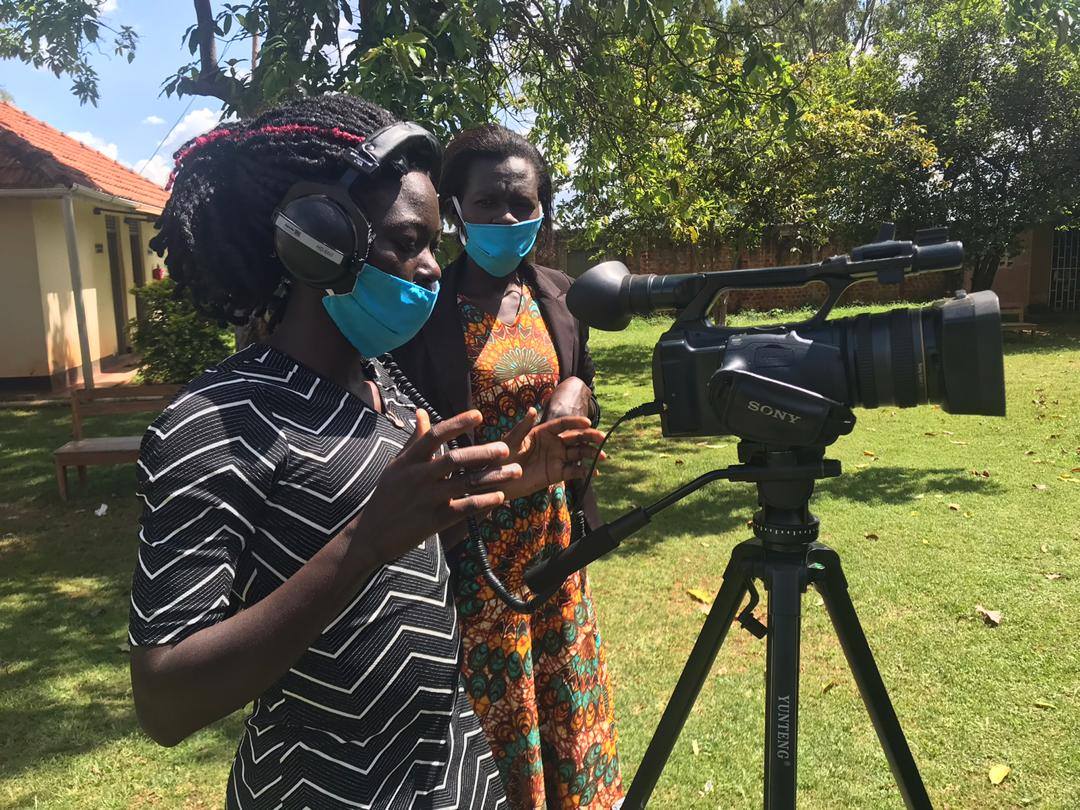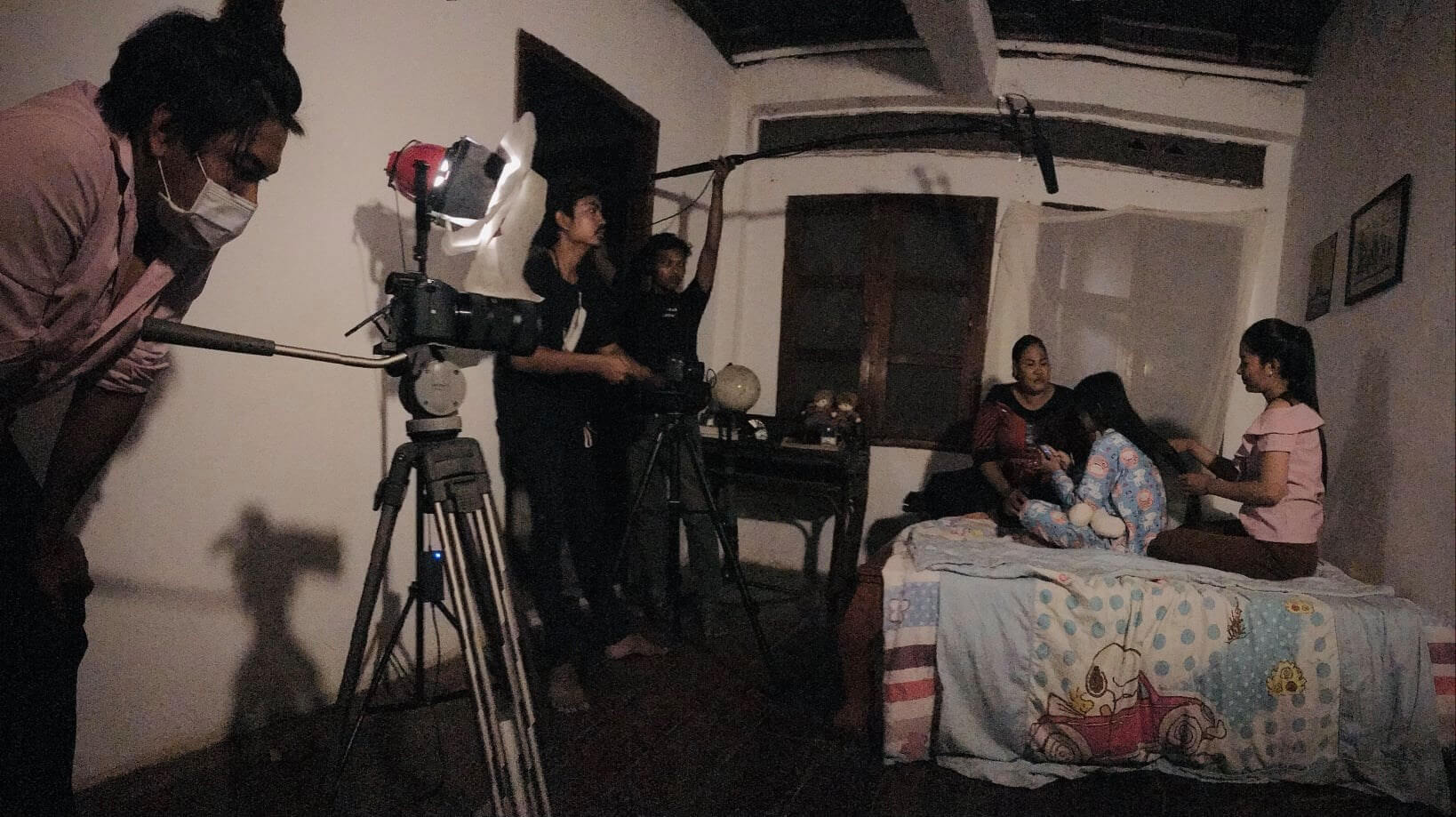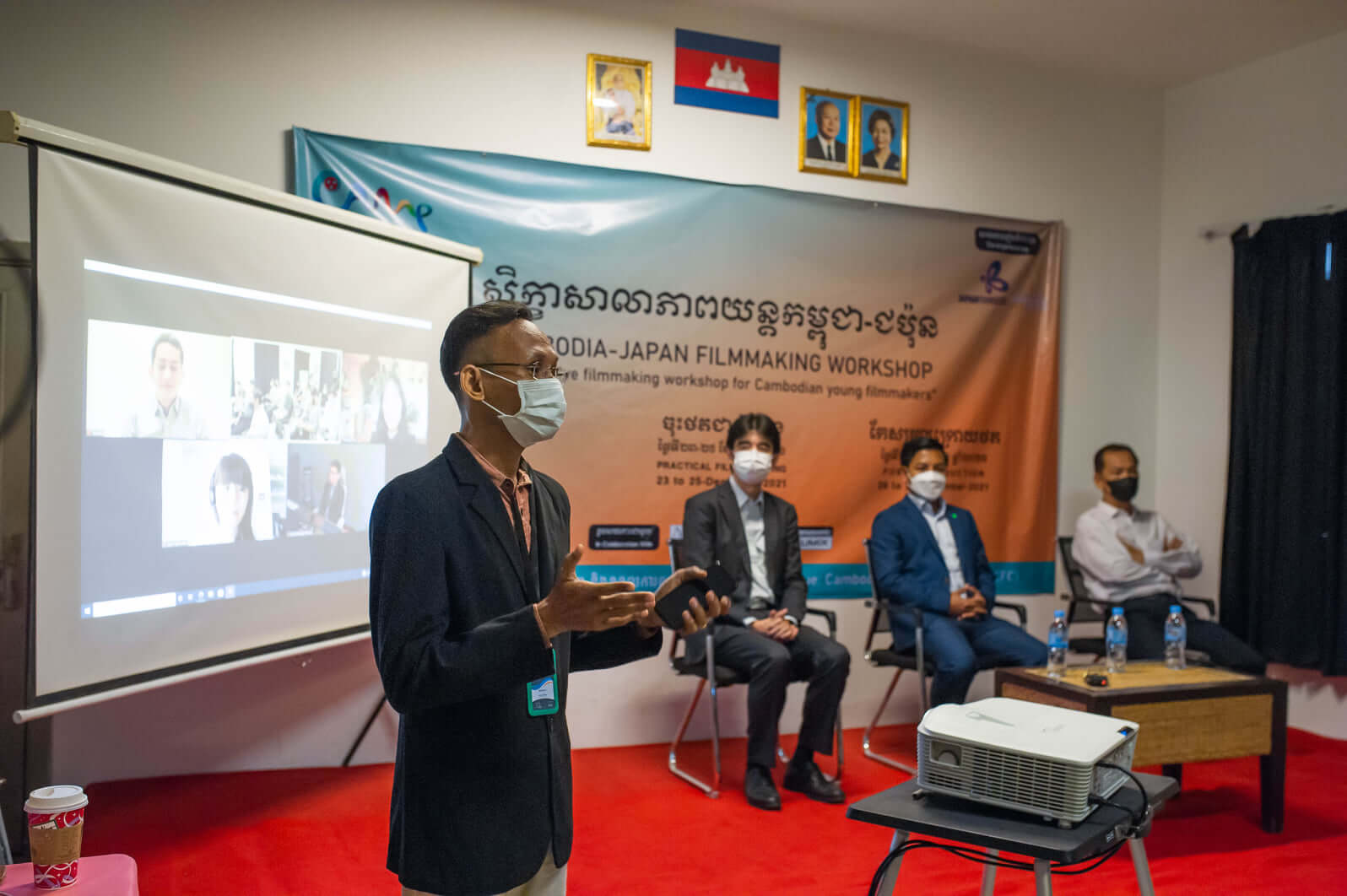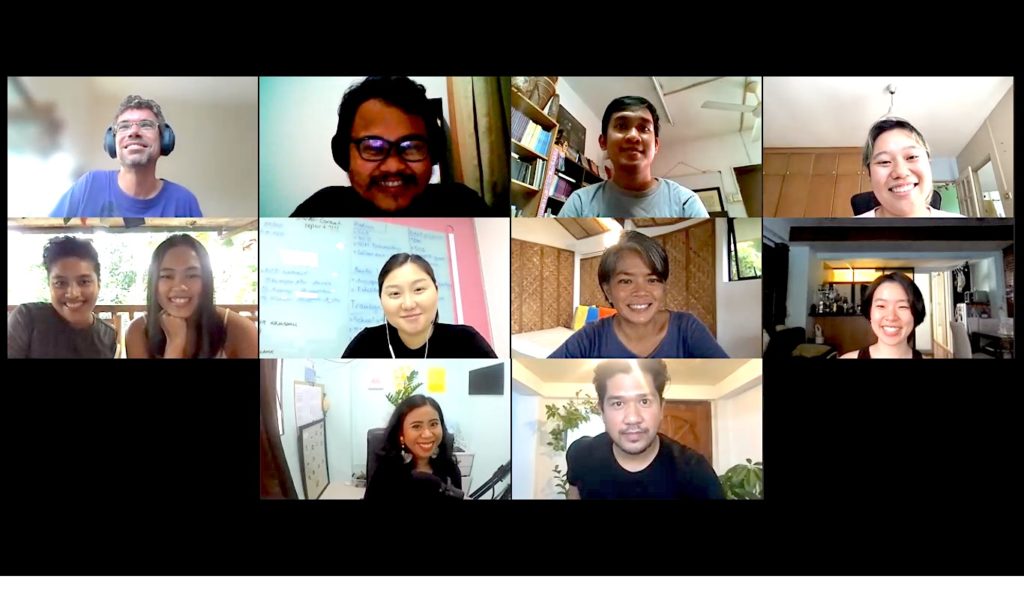The COVID-19 pandemic caught everyone by surprise when it hit in early 2020. With strict government protocols limiting physical gatherings and movement, Video for Change practitioners around the globe had to adapt and find creative ways to continue producing videos that impact communities in positive ways.
Last month, the Video4Change Network held an online learning session to discuss best practices and lessons learned from over a year of working under a global pandemic. EngageMedia, Refugee Law Project, and Sunflower Film Organization shared their experiences during the event.
“We had to rethink our priorities and quickly adapt to new ways of working online to ensure we continued to support our partners and both their and our community of filmmakers, activists, storytellers and advocates around the globe”, said Claudia Modonesi, co-director of Picture People, a member of the Video4Change Network.
The Video4Change Learning Sessions are held bi-monthly and are facilitated by Network members. These sessions aim to share knowledge and resources among practitioners using video as a tool for change.
Empowering expression through community-led podcast production
“[In] the beginning, people were fearful. They were lonely”.
This was how Martha Akello of Refugee Law Project (RLP) described the team’s sentiments when the pandemic began. These feelings were heightened by the extended lockdowns imposed by the Ugandan government, which affected the communities that RLP supports.
RLP’s initial pandemic response focused on helping clients get support for psychosocial wellbeing. To this end, RLP set up a tele-counselling mechanism and provided mental health support. “It came with challenges – having a common language and trust issues – but at least there is something developed”, Akello said.
RLP also supported community members in accessing critical health information. While the Ugandan government provided communications materials in different local languages, these were inaccessible to migrants who spoke diverse languages. Data accessibility was also another challenge. “The clients that we work with are in spaces or areas that have no infrastructure for power and telecommunications”, Akello said.
To address these issues, RLP translated communications materials and convinced donors to re-allocate funding towards mobile data subscriptions to support communities with no access to telecommunications services.

Fifteen young people from Maaji settlement in Adjumani underwent basic videography training, where they learned to be more comfortable using video equipment. Photo from RLP, used with permission.
Amid the worries and concerns brought about by the pandemic, RLP tapped the power of media to help clients express themselves and find comfort in community. As part of their work to use media tools for engagement and social change, RLP supported young people in producing podcasts discussing their experiences during the pandemic. In the podcasts, urban refugee youth within Kampala shared how their lives have changed, the challenges they face in meeting their basic needs, and how to engage in productive activities as a way of coping.
Akello explained that empowering these communities with the tools and platforms to have their voices heard was important for their overall wellbeing. “We need to put the power in the hands of our clients to talk about the things going on among them”, she said.
Moving forward, RLP is planning to improve podcast content to continue addressing the needs of a younger generation of refugees. The organisation also plans to hold a film festival and explore “blended” programs that will bring together speakers from different parts of the world while engaging communities online and offline.
Transitioning from physical to online and hybrid activities
The Cambodia-based Sunflower Film Organization (SFO) shifted to online activities to train young Cambodians to use filmmaking as a tool for freedom of expression. Due to physical restrictions, SFO’s skill training, production, and screenings had to be redesigned. For instance, the Chaktomuk Short Film Festival was conducted online, securing a modest number of viewers. (Related: Watch more from Sunflower Film Organization on Cinemata)
Despite the restrictions on mobility, SFO remained active. The organisation held online production training sessions and produced a variety of digital campaigns, radio shows, and online community screenings for their Right-to-Work awareness campaigns, which reached 150,000 people online.

The Sunflower Film Team in action as they work on a short film. Photo from SFO, used with permission.
For SFO founder and Executive Director Sithen, one key lesson they learned was the importance of belonging to a network and engaging in collaborations benefiting organisations and communities. “I believe we could not achieve this much without the support of our allies”, he said.
To sustain the organisation, SFO turned film production into a social business focusing on non-government agencies. Aside from training filmmakers, SFO is also looking to train more producers who can adapt flexibly to any given situation. Sithen explained: “Producers are the ones managing the films and making sure that everything flows despite the crises”.
Following their successful transition from offline to online activities, Sithen believes that “the future is hybrid”. SFO plans to hold hybrid activities in the future, with participants joining in-person classes while the instructor teaches remotely.

In partnership with Japan Foundation, SFO conducted an intensive filmmaking workshop for young Cambodian filmmakers last December 2021. Photo from SFO, used with permission.
Flexibility, adaptability, and building relationships
Before the pandemic hit, EngageMedia had just celebrated its 15th anniversary and concluded several in-person workshops such as Coconet. Momentum was building for the Video4Change Network after the 2019 gathering of members in South Africa. But plans for more activities turned to a different direction due to the pandemic.
“It was a strange time. There were many face-to-face plans, and videos to shoot, but we needed to make adjustments… I was tasked to set up a small video recording space in the office, but all of a sudden, everything was going to be online,” said EngageMedia Video Lead King Catoy.
With a distributed team, EngageMedia was already adept at working remotely. However, the pandemic still posed challenges, particularly in conducting video for change initiatives. To address this, Catoy researched how to conduct remote production using open-source tools and software. Despite the lack of references available at the time, Catoy was able to publish a short guide on recording a video podcast remotely. (Read more: Editing Videos Using Your Mobile Gadgets, The Basics of Video Resolution)
Amid the COVID-19 restrictions, EngageMedia’s video production work continued. As the lockdowns in the Philippines eased, Catoy produced the short documentary film Shooting Covid-19: Media Frontliners in Manila, to know how filmmakers and Video for Change practitioners worked around the challenges of filming during a pandemic. To guide his work, Catoy used the Independent Documentary Filmmaking Guide produced by Docs Society and Sundance Institute as reference.
In 2020 and 2021, EngageMedia launched two rounds of the Environmental Impact Lab for filmmakers in the Asia-Pacific region, which were held online. Key to ensuring the success of these activities was extensive preparation and relationship-building. As EngageMedia Learning Manager Egbert Wits put it: “Strong relationships can be built online. It requires a lot of extra effort though; for instance, through regular individual catch-up sessions with participants, outside of the main sessions”.

The participants of the second Video for Change Environmental Impact Lab meet EngageMedia Learning Manager Egbert Wits (top left) and former EngageMedia Project Officer Fendi Widianto (second from top).
Finding a sense of purpose
As the Video4Change network wrapped up the sharing session, there was a prevailing sense of camaraderie in knowing that each organisation was not alone in these trying times. By discussing the similarity of experiences and how each member found creative ways to overcome these hurdles, video for change practitioners continue to learn from and inspire each other.
Modonesi summed up these sentiments by referring to the sense of purpose that drives each organisation: “COVID also brought to light what valuable work means to us as a charity – not only to provide educational support and opportunities to people who have suffered the most from the educational void in this difficult time, but also to give a sense of purpose and belonging to our global network of alumni”.
She added: “It’s this sense of community that has prevailed and we couldn’t be prouder”.
——————
Demie Dangla is the Video for Change Project Coordinator of EngageMedia.